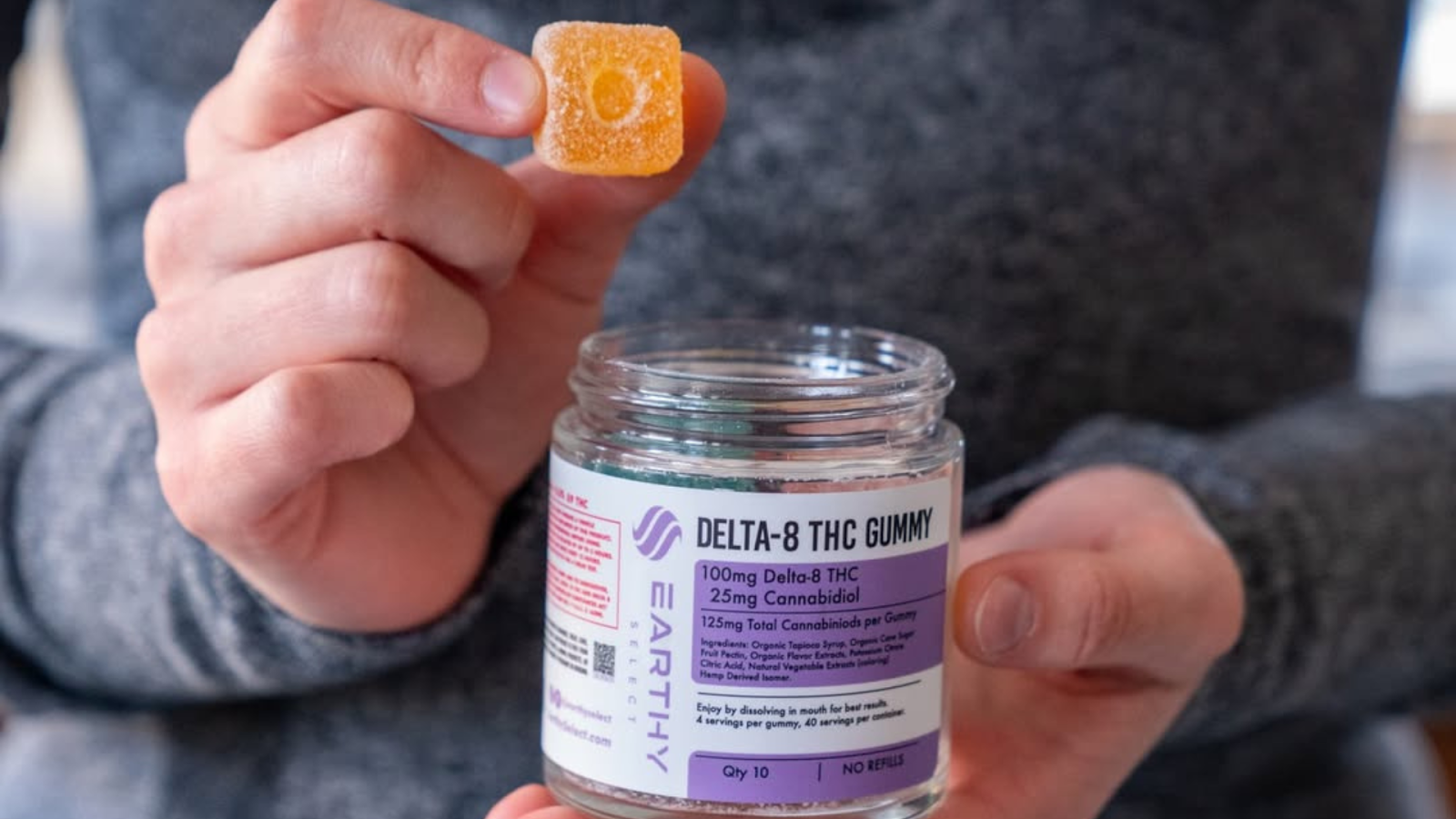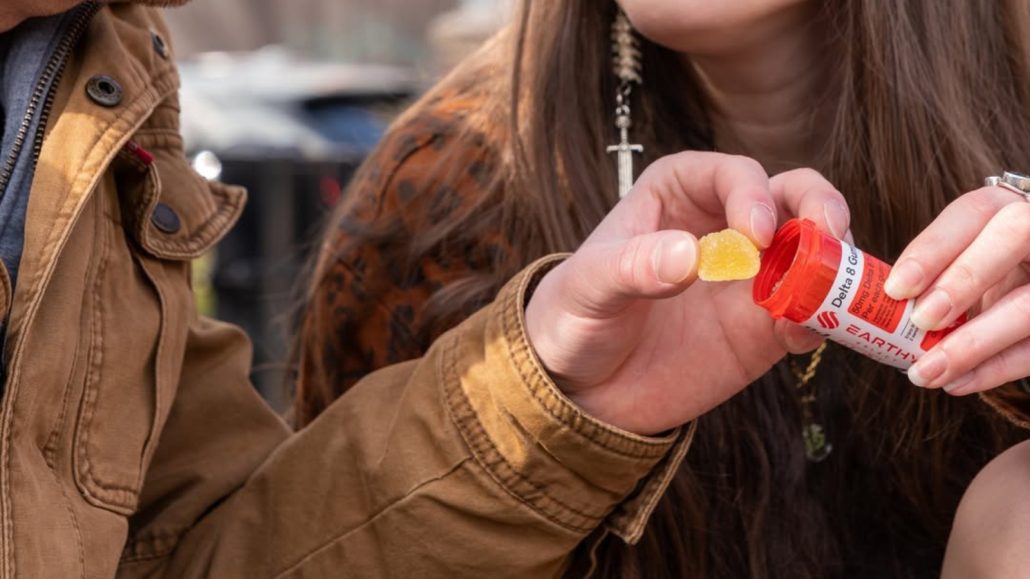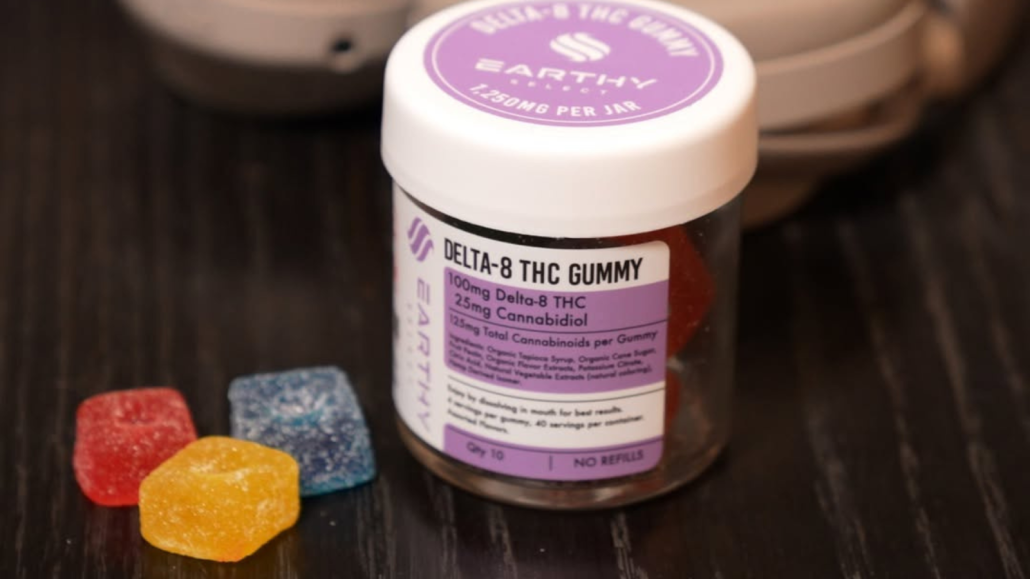Is Delta-8 Legal in Texas?
Key Takeaways
- Delta-8 THC Is Legal in Texas: Texas law allows hemp-derived Delta-8, making it accessible to consumers looking for legal cannabinoid products.
- Hemp-Derived Cannabinoids Offer a Legal Alternative: Since Texas prohibits recreational marijuana, cannabinoids like Delta-8 and Delta-10 provide an option within legal boundaries. Understanding their differences helps consumers make informed choices.
- Earthy Select Prioritizes Compliance and Quality: Every product undergoes rigorous third-party testing to ensure purity, safety, and adherence to state and federal laws, giving Texans a trusted source for hemp-derived products.
Cannabis is available.
But with legitimacy come new challenges. Delta-8 THC is a unique cannabinoid that’s caught the eyes of cannabis enthusiasts and wellness seekers thanks to its intriguing potential for offering a distinct experience that sets it apart from its more famous cousin, Delta-9 THC. However, as with any cannabinoid, understanding its legal landscape is paramount, especially in states like Texas, where laws are a bit complicated.
At Earthy Select, we’re passionate about bridging the gap between cutting-edge cannabis science and everyday accessibility. Our mission is to bring clarity to the complex world of hemp-derived products. In this post, we’ll delve into the question of whether or not Delta-8 is legal in Texas. We’ll unpack the science, the statutes, and what it means for those eager to embrace this next-level cannabinoid.
Federal Laws on Delta-8: What You Need to Know
Delta-8 THC is one of the most talked-about cannabinoids today, but its legal status wasn’t always clear. Some hemp products are greenlit under federal law, while others exist in a legal gray area. If you’re wondering where Delta-8 stands, let’s break down the laws shaping its place in the hemp industry.
The 2018 Farm Bill and Its Impact
In 2018, the Farm Bill reshaped the hemp industry by separating it from marijuana in the eyes of federal law. Instead of lumping all cannabis plants together, lawmakers defined hemp as Cannabis sativa L. with no more than 0.3% Delta-9 THC on a dry weight basis.
This distinction was a game-changer as it meant hemp-derived compounds like CBD and Delta-8 THC could be legally produced and sold as long as they stayed under the Delta-9 limit. However, the bill failed to address one crucial question: What about cannabinoids created through extraction or chemical processes? That gap in clarity opened the door for debates about Delta-8’s legality.
The Current Federal Stance on Delta-8
After the Farm Bill passed, the DEA issued an Interim Final Rule in 2020 to clarify how it would enforce the new law. The DEA confirmed that naturally derived hemp cannabinoids remain legal but specified that “synthetically derived tetrahydrocannabinol” are still classified as Schedule I controlled substances.
Since most commercially available Delta-8 THC isn’t directly extracted from hemp in large quantities, manufacturers often convert CBD into Delta-8 through a chemical process. This raised an important legal question of whether this process makes Delta-8 synthetic. Since the DEA didn’t provide a clear answer, the legal battles over Delta-8’s status continued. Then in May 2022, the U.S. Court of Appeals for the Ninth Circuit ruled that hemp-derived Delta-8 THC is federally legal as long as it contains less than 0.3% Delta-9 THC.
Earthy Select’s Commitment to Compliance
Delta-8 laws continue to evolve, but Earthy Select is committed to compliance at every level. Our products undergo rigorous testing in DEA-registered, ISO-accredited labs to ensure purity, safety, and legal compliance. We follow federal and state regulations, keeping up with legal changes to provide reliable, transparent products. As conversations around hemp-derived cannabinoids continue, we remain dedicated to education, innovation, and compliance. Explore our Delta-8 collection today.
Is Delta-8 THC Legal in Texas?
Yes, Delta-8 THC remains legal in Texas. In 2019, the state legalized hemp and its derivatives through House Bill 1325, which aligned Texas law with federal regulations. This bill allows the production, manufacture, and sale of hemp-derived products as long as they contain no more than 0.3% Delta-9 THC.
However, Delta-8’s status has faced legal challenges. In 2021, the Texas Department of State Health Services (DSHS) attempted to classify Delta-8 as a controlled substance, effectively banning it. This led to a lawsuit from hemp retailers, and a judge temporarily blocked the ban while the case moved through the courts. As a result, Delta-8 remains legal in Texas, but both lawmakers and businesses have closely monitored the situation.
Medical Use of THC in Texas
Texas has a limited medical cannabis program under the Compassionate Use Program (CUP). This program allows certain physicians to prescribe low-THC cannabis to patients with qualifying conditions. Under Texas law, low-THC cannabis is defined as containing no more than 1% THC by weight. Although Delta-8 THC isn’t a part of this program, it remains a separate, hemp-derived product that the general public can purchase.
Hemp-Derived Cannabinoids: Understanding Delta-8, Delta-9, and Delta-10
Hemp-derived cannabinoids offer a range of effects and applications, making them a key area of exploration for those interested in alternative wellness options. While many people are familiar with Delta-9, other cannabinoids like Delta-8 and Delta-10 have gained attention for their unique properties. Let’s break down how they differ.
What Is Delta-8?
Delta-8 is a naturally occurring cannabinoid found in hemp, though in much smaller amounts than other compounds. Because of this, manufacturers typically convert CBD into Delta-8 through a refinement process.
Known for its smoother, more relaxed effects, Delta-8 is commonly chosen by those seeking a mild, balanced experience. Its popularity has grown due to its federally legal status under the 2018 Farm Bill, which allows for hemp-derived cannabinoids as long as they meet the 0.3% Delta-9 THC limit. Delta-8 can be found in hemp-derived tinctures, edible gummies, and vaporizable extracts, offering a variety of ways for consumers to explore its properties.
What Sets Delta-9 Apart?
Delta-9 is the most well-known cannabinoid and occurs naturally in hemp and marijuana plants. In the hemp industry, Delta-9 is legally permitted in concentrations of 0.3% or less in compliance with federal and Texas state law.
Due to its higher concentration in cannabis plants, Delta-9 has historically been the most studied and widely recognized cannabinoid. While hemp-derived Delta-9 products exist in legally compliant forms, Texas regulations prohibit higher concentrations beyond the federal threshold.
How Does Delta-10 Differ?
Delta-10 is another rare cannabinoid found in hemp, typically present in trace amounts. Like Delta-8, it is often produced from hemp-derived CBD. Delta-10 has gained attention for its lighter, more energizing properties, with users describing its effects as uplifting compared to Delta-8.
Because of its low natural concentration, Delta-10 undergoes a careful refinement process to be included in hemp-derived extracts and infused products. As with other cannabinoids, its legal status depends on state regulations, making it essential for consumers to stay informed.
Medical and Recreational Cannabis in Texas: What’s Legal?
Texas has some of the most demanding cannabis laws in the country, keeping recreational marijuana off the table and limiting medical access to a state-run program with tight restrictions. Unlike states that have embraced full legalization, Texas only allows low-THC cannabis for specific medical conditions through CUP. This means doctors can prescribe cannabis with no more than 1% THC to patients with epilepsy, multiple sclerosis, and terminal cancer.
For Texans looking for legal alternatives, hemp-derived cannabinoids have become a go-to option. While recreational marijuana isn’t an option under state law, federally compliant hemp-based products offer a way to explore cannabinoids without stepping outside legal boundaries. As laws continue to evolve, Earthy Select stays committed to offering products that meet state and federal regulations, ensuring quality and compliance every step.
The Future Behind Marijuana and Hemp-Derived Products in Texas
The conversation around cannabis in Texas is heating up, and it’s not just behind closed doors in the legislature – it’s happening in courtrooms, dispensaries, and among everyday Texans who are pushing for change. While the state has historically taken a hardline stance on marijuana, recent discussions suggest that the future may not be as set in stone as it once seemed.
The Legislative Landscape: Push and Pull
Texas lawmakers are divided on the path forward, with some pushing for expanded access to cannabis while others aim to tighten restrictions on hemp-derived products. A few key bills in play right now include:
- House Bill 1208: This bill, introduced by Rep. Jessica González, aims to legalize recreational marijuana for adults over 21, allowing possession of up to 2.5 ounces and home storage of up to 10 ounces.
- Senate Bill 3: Backed by Lt. Gov. Dan Patrick, this bill takes the opposite approach, proposing a ban on consumable hemp products containing THC, including Delta-8 and Delta-9 variants. This bill has raised alarm bells among hemp retailers who argue it would cripple the state’s booming hemp industry.
- Senate Bill 1505: Also sponsored by Sen. Charles Perry, this bill proposes expanding the Texas CUP, offering more patients access to low-THC medical cannabis. While limited, it signals a steady shift toward broader medical access.
What Texans Think About Cannabis
While lawmakers debate, Texans have made their stance pretty clear – many want cannabis reform. A University of Houston survey found that 79% of Texans support expanding medical cannabis access, and 62% favor legalizing recreational marijuana.
Despite this, the divide between public opinion and policy remains wide. Lawmakers have been slow to act, with conservative leadership blocking significant cannabis reform efforts. However, with continued pressure from voters and the rapid growth of the hemp industry, change feels more inevitable than impossible.
Final Thoughts
At Earthy Select, we believe in bringing the best of cannabis science to enthusiasts and wellness seekers, emphasizing that legal does not mean weak. Our commitment to rigorous research and innovation positions us at the forefront of the hemp industry.
As of now, Delta-8 THC remains federally legal, although interpretations and regulations can vary by state. In Texas, the outlook for Delta-8 legality continues to evolve, demanding consumers stay informed. At Earthy Select, we encourage you to explore the benefits of cannabinoids with the confidence that comes from using products tested in DEA-registered, ISO-accredited labs.
Read More:
Frequently Asked Questions About Delta-8 in Texas
Is there a difference between Delta-8 and CBD?
Yes, there is a significant difference between Delta-8 and CBD. While both cannabinoids are derived from the hemp plant, they have distinct effects. Delta-8 is known for its mild psychoactive properties, providing a euphoric high similar to Delta-9 THC but often with less intensity. In contrast, CBD is non-psychoactive and is primarily used for its potential therapeutic benefits, such as reducing anxiety and inflammation without any high.
Are there any pending legal changes to Delta-8’s status in Texas?
The legal status of Delta-8 in Texas is dynamic. As of now, Delta-8 remains legal due to the 2018 Farm Bill, which permits hemp-derived cannabinoids under federal law. However, the state legislature could propose new regulations, so it’s crucial to stay informed about any pending bills or changes in legislation.
Can Texas businesses legally manufacture Delta-8 products?
Yes, businesses in Texas can legally manufacture Delta-8 products as long as they adhere to federal guidelines and state regulations. It involves ensuring that all products are derived from hemp and contain less than 0.3% Delta-9 THC. Earthy Select is committed to compliance and ensures all its products meet these requirements.
What are the potential effects of using Delta-8?
Delta-8 can provide a range of effects, including relaxation, mood elevation, and mild pain relief. Users often describe the experience as a more clear-headed and less anxiety-inducing version of the Delta-9 THC high. However, reactions can vary depending on individual tolerance and the product used.
Has there been any recent legislation on Delta-8 in Texas?
There have been discussions and proposals regarding Delta-8 in the Texas legislature, but no recent laws have been enacted to change its legal status. It’s essential to keep an eye on legislative sessions for any updates or shifts in policy as this cannabinoid continues to gain popularity.
What should I look for to ensure my Delta-8 product is legal in Texas?
To ensure your Delta-8 product is legal in Texas, check that it is derived from hemp and contains less than 0.3% Delta-9 THC. Verify that the product has been third-party tested, with results readily available for review. At Earthy Select, we prioritize transparency and ensure all products are tested in DEA-registered, ISO-accredited labs.
Does the Texas Controlled Substances Act include Delta-8?
Currently, the Texas Controlled Substances Act does not specifically include Delta-8, which allows it to remain legal under specific interpretations. This status might change with future legislative adjustments, emphasizing the importance of staying updated on state regulations.
Medical Disclaimer / Legal Disclaimer – Information is provided for educational purposes only. It does not, and is not intended to, constitute legal advice or medical advice. We strive to be accurate and up-to-date, but the legality of cannabinoids and the science of cannabis are continually evolving. The author is neither a legal professional nor a medical expert. Before buying or using any products, you should consult with your local authorities and medical providers.
Sources:
- U.S. Congress. (2018). Agriculture Improvement Act of 2018 (H.R.2 – 115th Congress). Congress.gov. https://www.congress.gov/bill/115th-congress/house-bill/2
- U.S. Food and Drug Administration. (2024). FDA Regulation of Cannabis and Cannabis-Derived Products, Including Cannabidiol (CBD). FDA.gov. https://www.fda.gov/news-events/public-health-focus/fda-regulation-cannabis-and-cannabis-derived-products-including-cannabidiol-cbd
- Marijuana Policy Project. (2024). Delta-8: Is It Legal? MPP.org. https://www.mpp.org/policy/federal/delta-8/delta-8-is-it-legal/
- Texas Department of Public Safety. (2025). Compassionate Use Program. DPS.texas.gov. https://www.dps.texas.gov/section/compassionate-use-program
- Texas Legislature. (2025). House Bill 1208: An Act Relating to Cannabis Regulation. Texas Capitol. https://capitol.texas.gov/tlodocs/89R/billtext/html/HB01208I.htm
- Texas Legislature. (2025). Senate Bill 3: Cannabis Legalization and Regulation History. Texas Capitol. https://capitol.texas.gov/BillLookup/History.aspx?LegSess=89R&Bill=SB3
- Texas Legislature. (2025). Senate Bill 1505: Cannabis Policy Amendments. Texas Capitol. https://capitol.texas.gov/BillLookup/history.aspx?LegSess=89R&Bill=SB1505
- Texas Cannabis News. (2025). State Legislative Updates on Cannabis Policy – February 2025. TexasCannabis.org. https://texascannabis.org/news-03feb2025





